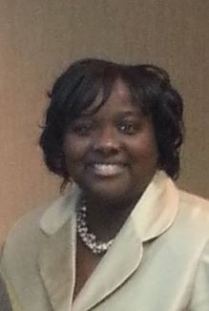A few weeks ago, the U.S. Department of Education (the Department) rulemaking panel met to discuss a number of items, but did not reach final consensus regarding state authorization for colleges that operate distance-education programs within other states. As a result, any new, proposed regulations will be left to the discretion of the Department.
This indecision has raised awareness and left some wondering what negotiated rulemaking really is and how it works. So, here is a quick rundown….
Let’s start first with a definition. Negotiated rulemaking (a.k.a. regulatory negotiation or reg-neg) is a process where an organization or agency develops a proposed rule. A number of agencies have used and been quite successful with reg-neg, including the Federal Aviation Administration, Occupational Safety and Health Administration, and Environmental Protection Agency.
With negotiated rulemaking, typically a committee is formed consisting of members representing the various groups that the proposed regulation itself may affect. An impartial facilitator is also identified. The general public may observe during meetings and usually at the end of each meeting, the committee offers an opportunity for public comment. Printed resources are available online on the appropriate agencies website.
The negotiated rulemaking process itself may be defined as a consensus-based process, as the ultimate goal is for the members of the committee to reach consensus regarding the proposed rule. The beauty of such a process is that stakeholders have a chance to try to reach agreement about the proposed rule before a final rule is formed. In addition, when successful, reg-neg can lead to better rules for everyone involved.
Now, let’s look at how this relates to distance education…
As per the Office of the Federal Register (OFR), in May 2012 the U.S. Department of Education announced the intent to form a negotiated rulemaking committee to consider proposed regulations that would help prevent fraud and ensure appropriate use of Title IV Federal Student Aid program funds, especially within the “context of current technologies”. More specifically, the proposed regulations were to address the use of debit cards to distribute such funds. Later, in April 2013, several topics were added for consideration of the negotiated rulemaking committee, including items related to state authorization for programs offered through distance education.
Requests for nominations took place in the Fall 2013 and by Feb 2014, the negotiated rulemaking panel was formed. Marshall Hill (Executive Director of NC-SARA) and Russ Poulin (Interim Co-Executive Director for WCET) represent the field of distance education.
Though negotiating committees usually meet for three sessions, this particular committee met on four occasions, once per month from Feb 214 to May 2014. The specific meeting schedule and session materials from each meeting may be found online at http://www2.ed.gov/policy/highered/reg/hearulemaking/2012/programintegrity.html
Unfortunately, in this case, a consensus was not reached by the panel. So, what next?
Well, the Department itself will determine whether or not to proceed with regulations. If the Department decides to proceed with regulations, it may use regulatory language developed during the process, or develop new regulatory language altogether.
Either way, once the proposed regulation is prepared, a request for public comments will be announced and a deadline for submitting those comments will be provided (an expected, total time period of 60days). Once comments have been received, the Department will respond to the comments and then offer the final regulation, which will be published in the Federal Register. It will contain the regulation itself and the dates date by which those involved must comply.
At this point, many are hoping that the department will release information regarding proposed regulations in the coming months (by July 2014) and a response to public comments by mid fall (Oct 2014). However, or more information, watch the Office of the Federal Register website for notices and proposed rules at https://www.federalregister.gov/
Post Written by: Dr. Laurie G. Hillstock: Facilitator, SLOAN C Leadership Series

Dr. Laurie G. Hillstock has been a faculty member and administrator in higher education for over 15years. Most of her experiences have been in the distance learning arena, focusing on strategic planning (i.e., organizational structure, policy, accreditation, and funding models), faculty and curriculum development, marketing, and student success.She has also taught a number of credit bearing courses in the online, hybrid, and web-enhanced learning environment.
Dr. Hillstock currently serves as a mentor for the SLOAN C Certificate program as well as a content developer and workshop facilitator for other SLOAN C workshops, including the Online Leadership series.
Dr. Hillstock holds a Ph.D. in Educational Leadership (Higher Education) and M.A. in Human Resource Development from Clemson University. She also holds a B.A. in English (minor: Computer Science) from Converse College.

